#philby burgess and maclean
Explore tagged Tumblr posts
Text
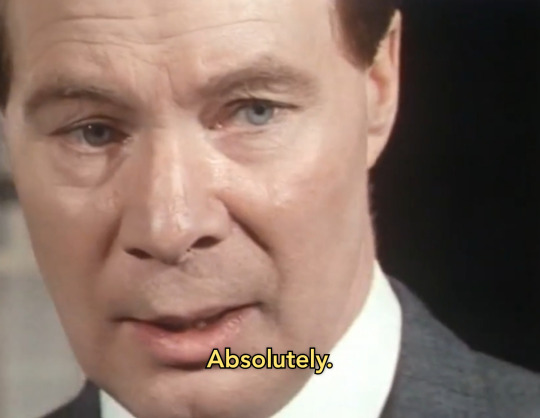
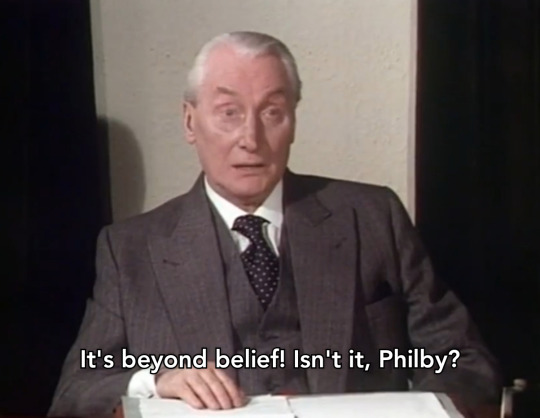
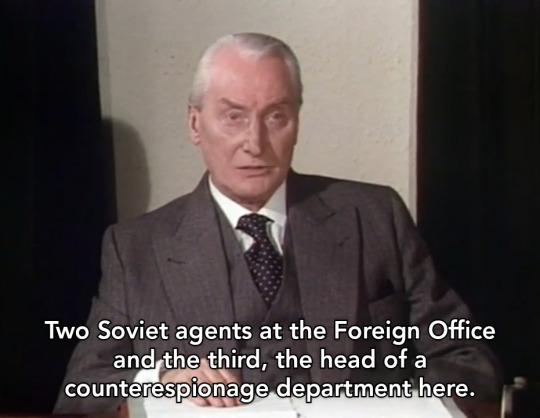
PHILBY, BURGESS AND MACLEAN (1977) dir. Gordon Flemyng
#extremely niche post but this absolutely took me out#cambridge spy ring#philby burgess and maclean#philby burgess and maclean 1977#kim philby#films#filmedit#my edit#my post
8 notes
·
View notes
Text
Vijftig jaar geleden: "Tinker, tailor, soldier, spy" (John Le Carré)
Vijftig jaar geleden verscheen “Tinker, tailor, soldier, spy” van John Le Carré. Continue reading Vijftig jaar geleden: “Tinker, tailor, soldier, spy” (John Le Carré)

View On WordPress
0 notes
Text

I thought Cambridge Spies was *the* most British thing I’d ever seen, until I watched Maurice shortly after. I’m still on my Toby Stephens kick, which explains Cambridge Spies, and lord, is he pretty in it. But I also wanted to ogle the very young, stunningly beautiful Hugh Grant in Maurice, so I watched both.

I nursed a bit of a crush on Grant back in his Four Weddings days, around the same time as Maurice, but I’d honestly forgotten how incredibly, ethereally gorgeous he was, like some androgynous nymph out of a Waterhouse painting, smooth and luscious, too perfect to be real. For the record, I do love today's older, rougher Hugh, who has managed, over time, to turn ass-hole-ish curmudgeonliness into a charming brand all his own.
My overall impression of Merchant Ivory flicks is that they are much like paintings: pretty to look at, and if you stare long enough, something in your field of view eventually moves, but it takes, like, days. Days. I don’t know if my attention span has been worn down over the decades like everyone else’s, or if these movies need some tighter editing, but good lord, at two hours and twenty minutes, not much happens in Maurice. Or is it EM Forster? Maurice is a Forster adaptation; and similarly, so is A Room with a View, which also flows like molasses. I’ll never know if it’s the writing or the editing, because I’ve never read anything of Forster’s except for Room, which I attempted when I was a teenager and quit halfway through, because what in the fuck was he going onnnnn about? And I even had a better attention span back then, in the nineties. I said to my husband after Maurice ended, perhaps he and I needed a course on Forster to truly appreciate the literature and the movie adaptations. It’s unlikely to happen, but there it is.
Maurice follows the lead character, played by James Wilby, as he discovers and wrestles with his latent homosexuality. Hugh Grant plays Clive Durham, Maurice’s good school friend and first (unconsummated) love. The two men pal around London and the countryside as they age well into their twenties, spending time together and apart, both grappling with their sexual identities in different ways. The movie also casts a very cute Rupert Graves as Maurice’s first lover, and Ben Kingsley (with hair and a weird American accent—what a hoot) appears in a cameo as a shrink who attempts to hypnotize Maurice into heterosexuality.

My bitching isn’t a condemnation of Forster or Merchant Ivory; the film was a rather pretty little trifle to look at. I thought the story was good, and I love that a major film studio was tackling the horrors of being gay in Edwardian England so long ago (1987, when AIDS was still considered “the gay cancer.” —Hats off to them.) And I’m always game to watch pretty boys cavorting about. There was a good deal of that, one scene with full frontal nudity (gasp!)
Speaking of pretty boys, several feature in Cambridge Spies, which takes place about thirty years after Maurice, shortly before WWII. The prettiest of them is Toby Stephens, who is just dashing dressed in wide leg trousers, fedoras, and the well-tailored suits of the era. He plays Kim Philby, one of the notorious Soviet spies that comprised the group known in real life as the Cambridge Five. Rupert Penry Jones plays Donald Maclean; Samuel West is Anthony Blunt, and Tom Hollander is Guy Burgess. Since American public-school curriculum doesn’t teach any history but its own, (much of which is white-washed lies, but that’s a kvetch for another day), I never knew about the British turncoats until I watched this, which was last week. Yay for me.

Spies is a four-part miniseries, the last two episodes of which are far, far more entertaining and engaging than the first two. It’s good they decided to balance the episodes thusly, as I was ready to throw in the towel after the second one. The only reason I continued on was because I’d already invested time in watching the first 50 percent—in for a penny, in for a pound. I think the writers wanted the first two episodes for back-story and character development, but there is little that reveals the principals’ various motivations for spying other than that they were all friends at Cambridge, and they shared a deep hatred of fascism. Weird that that was all it took, right? I dunno, maybe I missed something—these were the two most boring episodes.
The entire series really belongs to Tom Hollander. He steals every scene he’s in; he has the best lines, the most cuttingly funny remarks, and he’s the craziest and loosest cannon of the bunch, hence, the most entertaining. Previously, I’d only known his work from 2005’s Pride and Prejudice (the boiled potatoes), and from his creepily-repressed turn as art critic John Ruskin in Desperate Romantics. He’s great and memorable in those, but he is phenomenal in Spies.
Hollander’s Burgess, as well as West’s Anthony Blunt, are gay men, compelling because they'd opted into an overwhelmingly straight-male power structure: espionage. Spies doesn’t really speak to this much, rather than to have Hollander portray Burgess as an out and proud gay man, I suppose as much as one could be on the brink of WWII in England. But it is striking to see the difference just three decades made in how gays were perceived by English society (or not) when you compare the attitudes on display in Maurice to those in Spies. Homosexuality was the worst sin one could commit in the world of Maurice; but by the time we get to Spies, it’s barely an issue. I suspect that homosexuality was still offensive to many in England at the time, as that country’s decriminalization law only took effect in 1967, but for some reason unknown to me, the writers and producers of Spies made it mostly a non-issue.
Overall, Spies was a good series, educational for me, at least, and I got to stare at Toby Stephens for four hours, including a couple safe-for-granny sex scenes. Would I write home about the show? —probably not, but it was not wasted time.

Tom Hollander’s best scene (and they’re all good) is a tantrum he throws during a trip to the States, where he drives across suburban lawns, destroying several white picket fences, then stands atop his car screaming “God Bless America” (in a good American accent), and decries this country’s never-acknowledged social and political hypocrisy.
Brilliant. And funny.

#period dramas#cambridge spies#maurice#toby stephens#tom hollander#hugh grant#wwII england#edwardian england#movie review#tv review
19 notes
·
View notes
Text
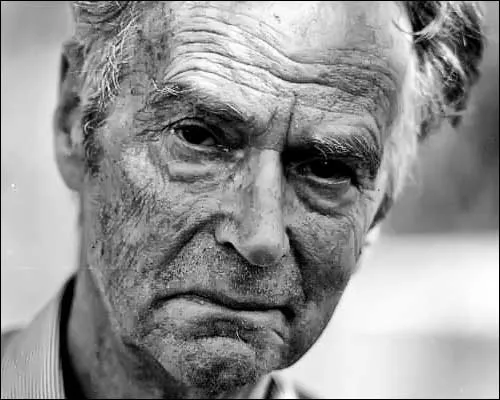
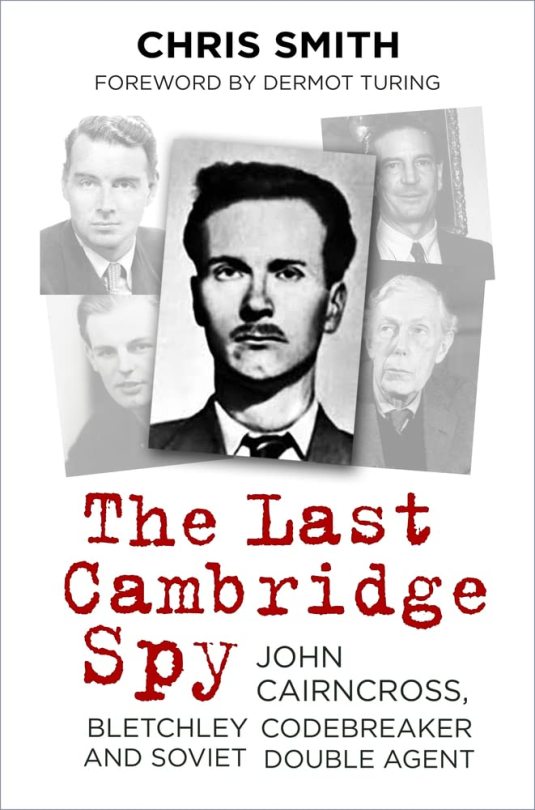
John Cairncross WWII intelligence officer and Soviet spy was born on 27th July 1913 in Lesmahagow, Lanarkshire.
Cairncross was highly educated, attending Glasgow University and obtaining degrees in French and German at the Sorbonne in France before entering Cambridge University on scholarship to study modern languages.
Was introduced to Anthony Blunt and Guy Burgess and soon became a Communist working with the Cambridge Spy Ring. Monitored by Soviet agent Samuel Cahan, he received a short course in espionage tactics before taking the Home Office and Foreign Office exams, receiving the highest scores on both.
Was assigned to the Foreign Office in 1936 where he worked briefly with Donald Maclean. Served as Served briefly as the personal secretary to Lord Maurice Hankey who oversaw Intelligence services in Britain. Moved on to the Bletchley Code and Cipher School. In the course of his job he passed intercepted messages and other classified information to his Soviet handler. He often delivered cases full of intercepted German messages int he back seat of his car which he drove to the Soviet embassy.
During World War II, worked for MI6 in its London headquarters. Smuggled plans for postwar Yugoslavia to the Soviets. After World War II, continued to pass information to Soviet agents, including Kim Philby, Donald Maclean and Guy Burgess.
In 1951, sensitive documents in Cairncross’ handwriting were found in Burgess apartment after Burgess and Maclean fled to Russia. He was thus fired from his position in the British Treasury department, although he denied being a spy. He turned to scholarly activities and humanitarian efforts for the United Nations.
In 1964, Sir Anthony Blunt confessed to being a Soviet spy and in return for leniency identified Cairncross as another Soviet agent. When confronted with the evidence, Cairncross admitted to his espionage, explaining that he had not spied for several years, saying that he spied only during World War II, when Russia was a British ally.
Soviet defectors later disputed Cairncross statements about his limited involvement in espionage. They claimed that he had turned over countless reams of information.
Fearful of negative publicity and scandal, the British government hushed up his activities, declining to prosecute him for espionage or to expose him to the public. Cairncross, in fact, remained for a time in his job as with the United Nations Food and Agricultural Organization.
Cairncross was exposed in 1981 by Prime Minister Margaret Thatcher. He continued his life in exile until 1995 when he moved to Britain and married American opera singer Gayle Brinkerhoff. Later that year he died after suffering a stroke.
9 notes
·
View notes
Text
Novels have been written about what just happened at NBC News. One novelist, John le Carré, made a whole career telling stories that the NBC imbroglio mimics. The FBI and CIA both maintain schools to train new employees in how to avoid what NBC just did. If you don’t graduate with good grades and a strong recommendation, you don’t get hired.
One of the major jobs of any intelligence agency is to place spies in the top ranks of the enemy’s government, especially of its intelligence agencies. The Soviets placed the famed Cambridge quartet of Philby, Burgess, Maclean and Blunt in the upper reaches of British intelligence. Blunt even penetrated Buckingham Palace as Surveyor of the Queens Pictures.
Why is this a principal goal of intelligence agencies? So their spies can get close to enemy leaders and report back on the enemy’s plans and intentions.
What did NBC News do last week? They lifted a corner of the corporate tent and let a spy inside. Who’s the spy? Ronna Romney McDaniel, former Chair of the Republican National Committee, was hired as a paid contributor to the network, earning a reported $300,000 per year salary.
NBC is paying a spy for the Republican Party to come into 30 Rock and report back to Donald Trump, who owns the party of which she was nominally the chair. She was in that job for all four years of Trump’s presidency. She ran the RNC during the three years Trump has spent denying that he lost the election of 2020. She agreed with him that the election was stolen. It was a bedrock principle of the Republican Party from the day the Associated Press called the election for Joe Biden in 2020. She was chair of the Republican Party while the entire infrastructure of the party was mobilized to help Trump attempt to overturn the election results.
According to a report on, yes, MSNBC tonight, she participated in the plot in Michigan to create a fake slate of electors intended to replace the real electors won by Joe Biden. She called a Michigan Republican Party official, with Trump joining in on the call, and encouraged him to get Republican officials in Michigan to refuse to certify the presidential election in the state. Her job title and the name of the organization she ran, the Republican National Committee, appears in the federal indictment of Trump for attempting to overturn the 2020 election.
Ronna McDaniel was in effect a co-conspirator in Trump’s effort to stay in power after he lost the election in 2020. She has been either silent or dismissive of the insurrection Trump fomented on Jan. 6, 2021 when he whipped up his crowd on the Ellipse and sent them to attack the Capitol building and delay the certification of the election he had lost. From 2021 until her departure from the Republican National Committee, McDaniel has been a part of Trump’s campaign of gaslighting about the election, casting doubt on its legitimacy, agreeing with him that it was “stolen” from him and “rigged” against him. For the last three years, she has raised money to help him run his campaign for president. Since his several indictments, she has steered money donated to the Republican Party to help pay his legal bills. She has, effectively speaking, been an active member of his criminal defense team.
Trump has claimed in his defense against the charges brought by the Special Counsel that all of his actions after he lost the election in November of 2020 were part of his presidential duties to ensure the election was “free and fair.” Ronna McDaniel has agreed with and supported this line of defense. Trump’s attempts to put up slates of fake electors are not the “duties” of a President of the United States. They are crimes, and Ronna McDaniel was there when they were committed. She knows that Trump’s claims are lies, and yet she has repeated them and helped to spread them since November of 2020.
And there is this: Ronna McDaniel has been a key part of the campaign of the Republican Party to denounce and condemn the news media as “enemies of the people,” in Trump’s notorious words. She has called reports on Trump’s attempts to overturn the election “lies.” She has even denounced NBC News and MSNBC.
It's all of a piece, and it started at the top with Trump and the Republican Party. Network reporters have faced repeated threats from right-wing websites and podcasters calling them “traitors.” It's not just rhetoric. There are right-wing lunatics out there who have acted on such threats, such as the members of the Michigan militia who were arrested for conspiring to kidnap Michigan Governor Gretchen Whitmer. MSNBC had Arizona Secretary of State Adrian Fontes on the Rachel Maddow show tonight to discuss right wing disruptions occurring around the state at city council and county board of supervisors meetings. At the end of her interview, Maddow expressed regret that the state of Arizona has had to supply Fontes with an armed bodyguard who accompanies him everywhere he goes because of threats on his life. Other public officials around the country, especially those with jobs involving elections, have had to get protection for their offices and some have been provided with bodyguards.
The Republican Party, during the seven years McDaniel was its chair, did not denounce the threats of violence against public officials even once. McDaniel, while she was calling the election of 2020 “rigged” and helping Trump with his legal defense fund, had nothing to say about threats of violence against public officials.
In her appearance on Meet the Press yesterday, McDaniel tried to shift her stance on the 2020 election into reverse, admitting that Biden won the election and that he is the legitimate president. But she refused to agree with Mitch McConnell that Trump was “practically and morally responsible” for the attack on the Capitol, telling host Kristen Welker, “I don’t think he wanted the attack on the Capitol. I don’t hold him responsible for that.”
Welker pointed out McDaniel’s apparent change of tone about the 2020 election and asked her, “why should viewers, why should people, trust you believe what you’re saying right now?” McDaniel responded by denying that she has changed her positions and told Welker, “I think you should trust me.”
That’s what every spy who was ever caught and put on the spot told his or her interrogators. Don’t pay attention to the evidence. Trust me.
MSNBC has already announced that McDaniel will not appear as a guest on any of the network’s programs. NBC News should join them, and NBC should cancel McDaniel’s contract for cause, for lying on Meet the Press. She is not trustworthy. She is a spy for Donald Trump.
9 notes
·
View notes
Text
Cambridge Spies, 2003 BBC drama with Toby Stephens as Kim Philby, Tom Hollander as Guy Burgess, Rupert Penry-Jones as Donald Maclean, Samuel West as Anthony Blunt, and Alastair Galbraith as John Cairncross.
oh girl...the girlies of tumblr would have gone nuts for this...
8 notes
·
View notes
Text


On July 1st, 1963, the BBC reported that Harold ‘Kim’ Philby had been finally identified as ‘the third man’ of the Cambridge Spy Ring, which also included Guy Burgess and Donald Maclean. Philby had been working for the Soviets during his entire time with the British Foreign Office, which included an assignment at the British Embassy in Washington, liaising with the CIA. Ironically, in the late 1940s, Philby had worked as Britain’s head of Anti-Communist Counterespionage.
Lord Privy Seal, Edward Heath, told the Commons that while working for MI6 in Washington (around 1950-51), Philby had used his inside knowledge to warn Burgess and Mclean that they had been rumbled, allowing them time to escape to the Soviet Union. At that time Philby’s involvement was suspected, although not proven, but he was ousted from the Foreign Office on the orders of then Foreign Secretary, Anthony Eden, and the investigation remained open.
According to BBC reporting in July 1963;
"…British authorities had always suspected there was a "third man"…Mr Philby, often known as Kim, had been working as a journalist in Beirut when he disappeared four months ago…"
Philby subsequently turned up in Moscow, from where he denied that he had tipped off Burgess and Mclean, and said that Maclean had actually been alerted to the fact that the security services were onto him when the M15 agents tailing him got a little carried away and accidently bumped into his car.
Philby became a Russian citizen, a KGB General, and was awarded the Order of Lenin. He died in 1988 and was buried with Soviet military honours.
The Cambridge Spy Ring consisted of a group of 1930s university students who were recruited by Soviet agents. The motivation, according to the BBC, was ideological rather than financial, prompted by the belief that capitalism was corrupt and life beyond the Iron Curtain offered a ‘better model for society’.
“…The Cambridge spy ring was informally led by Harold 'Kim' Philby. He and his friends later moved into jobs in British Intelligence and the Foreign Office where they had access to top secret information. They spent their working lives passing valuable information to the Soviet Union…”
The identities of the fourth and fifth Cambridge Spies were not revealed until much later. Anthony Blunt was named in 1979, and John Cairncross in 1990. Cairncross had tipped off the Soviets in time for them to change their codes before Bletchley Park had cracked them, and it was believed the information he passed on about British and US atomic weapons programmes laid the foundations for the Soviets' nuclear capabilities.
There’s a little more on the Cambridge Spies in this 1999 BBC Report ( a classic piece of vintage internet);
#social history#uk politics#uk government#Cambridge spies#kim philby#the third man#intelligence services#cold war#soviet union#british culture#modern history
16 notes
·
View notes
Text
Le Carre again
Le Carre put an amazing twist on the real-life Cambridge Five; instead of history's five actual traitors networked to one another, Le Carre supposed that only one of them (Philby / Haydon) was an actual traitor, while the others (Alleline, Bland, Esterhase / Burgess, Maclean, Blunt, Cairncross) were playacting traitors as part of handling a double agent, while unknowingly enabling the real one.
(Le Carre's cast needs Smiley to make up five, and indeed Smiley was one of Control's five original suspects. The real-life Cairncross might be seen as a similarly marginal fifth.)
0 notes
Link
‘With the help of newly declassified documents, George Carey’s film shows how the most celebrated spy ring of the 20th century grew out of the class system, sexual hypocrisy and the sheer incompetence of some people who then ran Britain.’
I’m midway through watching this 90min BBC Storyville documentary and it’s fascinating, so sharing the link. @not-even-even, These are the ‘Cambridge spies’ I was talking about...
#storyville#toffs queer and traitors#guy burgess#cambridge spies#queer history#philby burgess and maclean#cambridge#eton#appeasement#communism#UK history#class#british establishment
118 notes
·
View notes
Quote
By the end of 1934, with Philby's help, [Arnold] Deutsch had recruited both [Donald Maclean and Guy Burgess], telling them - like Philby - to distance themselves from Communist friends. Burgess did so with characteristic flamboyance, becoming personal assistant in the following year to the right-wing Conservative MP Captain 'Jack' Macnamara, with whom he went on 'fact-finding' missions to Nazi Germany which, according to Burgess, were largely devoted to sexual escapades with gay members of the Hitler Youth.
Christopher Andrew, The Defence of the Realm
#quote#quotation#Christopher Andrew#The Defence of the Realm#Kim Philby#Donald Maclean#Guy Burgess#Arnold Deutsch#flamboyance#Jack Macnamara#Nazi Germany#Hitler Youth
4 notes
·
View notes
Photo
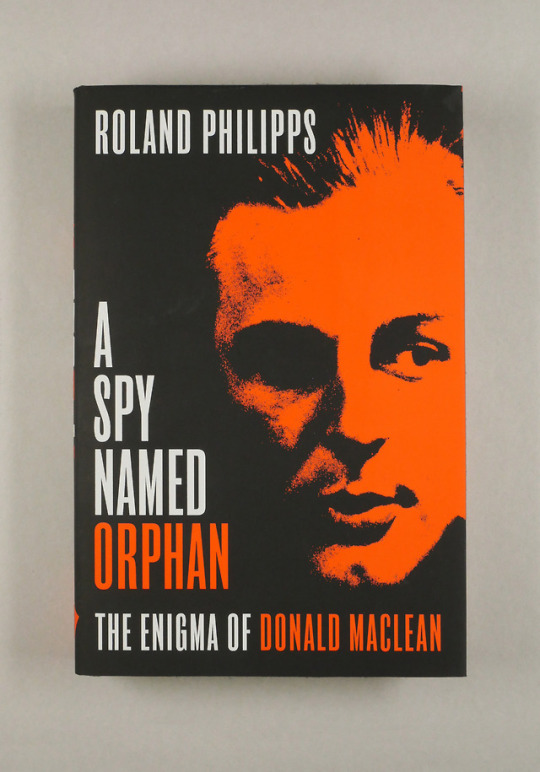
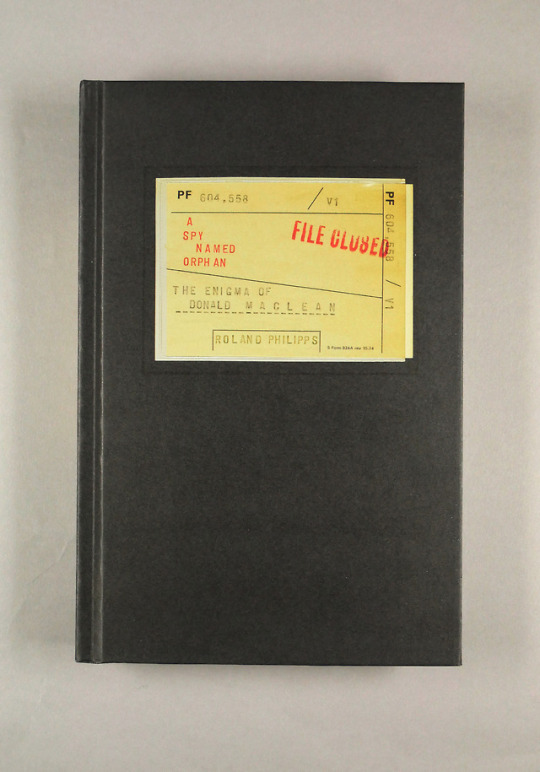
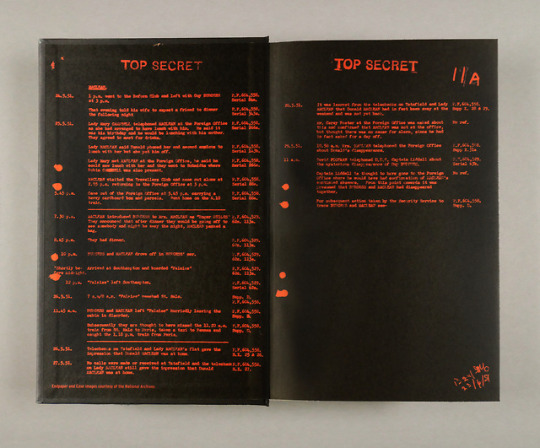
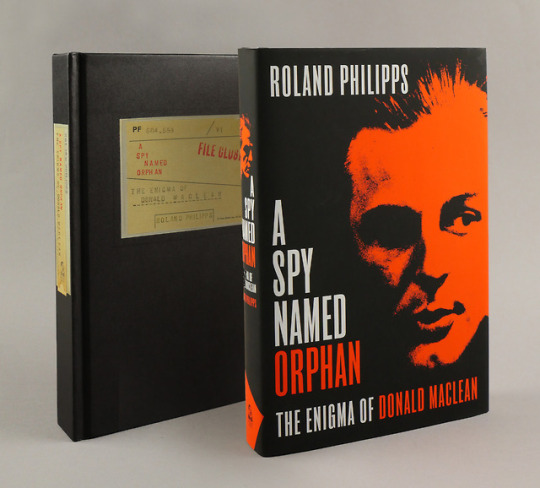
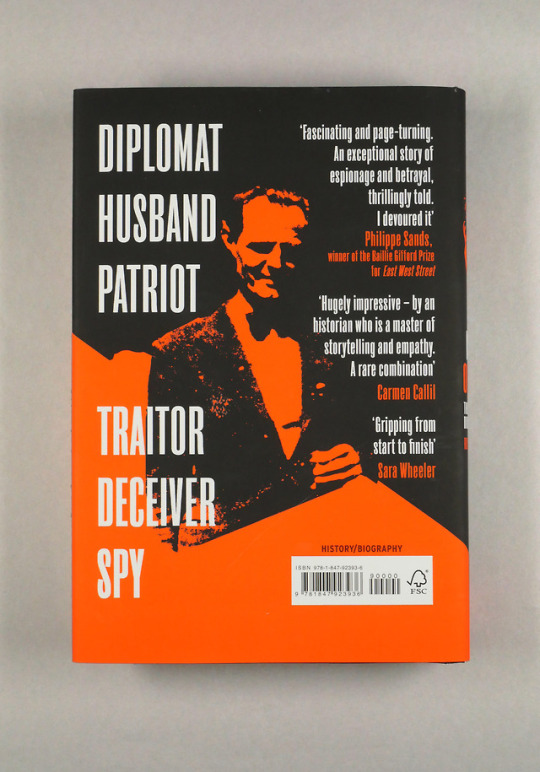
A Spy Named Orphan - Roland Phillips
There’s nothing like being handed official government documents from the National Archives to drive a cover concept. Our endpapers document the last known movements of one of Britains most well-kept secrets. Donald Maclean, a former British Diplomat and head of the American Dept in the Foreign Office, was one of the Cambridge Five - a spy ring acting for the Soviet Union. ‘Orphan’ tells the story of his astonishing double life – from austere childhood to Cambridge Graduate to his eventual defection in 1951.
A star diplomat with a tendancy for wild binges, Maclean was the perfect spy, leaking huge amounts of top-secret data to the Russians and heightening the tensions of the Cold war.
The front cover is from a portrait by Lettice Ramsey and Helen Muspratt who photographed many of Cambridge’s leading pre-war intellects. Thanks to Peter Lofts who now owns and runs the Ramsey and Muspratt archive.
#A Spy Named Orphan#Roland Philipps#The Bodley Head#penguin random house#vintage books#Donald Maclean#Kim Philby#Guy Burgess#Anthony Blunt#John Cairncross#Cambridge Five#Spy#Spycatcher#Soviet INtelligence#Russian Spy#Venona Project#orphan black#art direction#screenprinting#graphic design
9 notes
·
View notes
Quote
Spy scandals filled the newspapers, especially in Britain, in the 1960's. The names of Oleg Penkovsky and George Blake, famous in the early 60's as spies respectively for the Western and Soviet side who got caught, may now be forgotten, but surely not those of the Cambridge group of well-born English recruits to British intelligence who, on the basis of ideological sympathy, became double agents for the Soviets before being exposed. Guy Burgess and Donald Maclean had fled to the Soviet Union earlier, but Anthony Blunt, an art historian, continued to work as Surveyor of the Queen's Pictures for years, despite the persistent rumours of a third, fourth, or even fifth man. In January 1963, Kim Philby, one of the top officials in British intelligence, disappeared from Beirut; in July, he turned up in Moscow. Diplomats, journalists and businessmen could be spies, or accused of being so, leading to expulsion and, in rarer cases, arrest. So could scholars and students, for the exchanges offered too tempting a cover for infiltrating agents for either side to overlook it. The Soviet press often carried lively stories about the unmasking of such people – it was a kind of Soviet equivalent of yellow journalism, with spying instead of sex as the hook – but reading them you were never absolutely sure if the subjects had actually been spying or just looked suspicious to the Soviet authorities. Perhaps the American musicologist and double bass player Stanley Krebs really was a spy for the CIA during his stay on the American exchange (but why would the CIA want to know about the Moscow Conservatorium?) On the other hand, you had to wonder if the exchange student accused of 'infiltrating' Soviet trade unions under the guise of writing his dissertation on them was, in fact, just writing his dissertation.
“A Spy in the Archives: A Memoir of Cold War Russia”
#history#cold war#britain#england#ussr#espionage#kgb#cia#oleg penkovsky#george blake#guy burgess#donald maclean#anthony blunt#kim philby#stanley krebs
2 notes
·
View notes
Photo



On 27th July 1913 John Cairncross, Scottish spy, was born in Lesmahagow.
Cairncross was the son of an ironmonger and a school teacher. In 1933, he graduated from the University of Glasgow in 1933 with degrees in German and French. Cairncross continued his language pursuits by studying modern languages at Sorbonne in Paris and Trinity College in Cambridge University.
During World War II, Cairncross was recruited by the British armed services to serve as a German translator at Bletchley Park. He worked in Hut 3 of the ENIGMA/Ultra Project, where he helped decode German military communications for the army and intelligence services.
While at Bletchley Park, Cairncross supposedly provided decrypted German communications to the Soviets. Most notably, he alerted the Soviets about German army movements on the Eastern Front, which helped the Soviet army prepare for the German tank-offensive at the Battle of Kursk (July-August 1943). For this crucial information, Cairncross was awarded the Order of the Red Banner, a Soviet military decoration.
In 1944, he was transferred to MI6. The following year, he returned to the Treasury. After World War II, it is believed that Cairncross provided the Soviets with plans about the formation of the new NATO alliance.
After Burgess and Maclean fled England to escape investigation in 1951, handwritten notes from Burgess' home were found and linked to Cairncross. He was then interrogated by MI5. While he denied being a Soviet spy, he agreed to resign from Civil Service. Following his resignation, he moved to the United States to pursue becoming a literary scholar. While in the U.S., he taught at Northwestern University and Case Western Reserve University.
Following Philby's defection to the Soviet Union in 1964, Cairncross was again interrogated by MI5 and he confessed to being a Soviet spy. In exchange for providing information about Soviet personnel and other matters, he was not prosecuted and his involvement was kept silent. In the 1990s, Cairncross was identified as the "fifth man" in the Cambridge spy ring by former Soviet intelligence officers.
One of these officers was Yuri Modin, who in 1991 wrote about Cairncross' role. Although Cairncross denied sharing any information that hurt Britain, Modin claimed that Cairncross did provide information about the progress of American and British scientists in engineering an atomic bomb.
After being revealed as the "fifth man," Cairncross returned to England and began working on his memoirs, The Enigma Spy (1997), which were published posthumously. At the age of eighty-two years old, John Cairncross died of a stroke on October 8, 1995
For more information about John Cairncross, please see the following references:
The New York Times Obituary for John Cairncross
The Independent Obituary for John Cairncross
14 notes
·
View notes
Text
Silence Observed
[Silence Observed, by Michael Innes [aka J I M Stewart]. © J I M Stewart 1961. First published in Great Britain by Victor Gollancz Ltd 1961. Edition reviewed: (archive copy) - First Gollancz Crime edition 1992. ISBN 057505381X. Printed and bound in Great Britain by Cox & Wyman Ltd, Reading. Paperback. 192 pages]
Sir John Appleby, official title Commissioner of Police of the Metropolis, head of London's Metropolitan Police Service, meets Charles Gribble in the quiet room of their gentlemen’s club:
“standing directly in front of the fireplace. Just above his head, therefore, hung a notice which read SILENCE IS OBSERVED ... There were only two other men in the room. One was Sir John Appleby. The other, unidentifiable behind a newspaper, was clearly a man of resource ... from beneath it came the first of a regular succession of gentle snores” [p 5, first page of book]
It’s a story of forgery, apparently, which quickly becomes a story of manipulation, deceit, passion, murder, all in the clear written English of a master of the language.
The day jobs of Michael Innes in his alter ego as J I M Stewart [1906-1994] included being author of more than 30 books of literary criticism, novels, short story collections and non-fiction—including definitive critical studies of James Joyce, Joseph Conrad, Thomas Love Peacock, Thomas Hardy, and his autobiography Myself and Michael Innes; lecturer at Leeds University; professor at Adelaide University, and Queen's Universiy Belfast; Student (= Fellow) of Christ Church Oxford; Professor, Oxford University; Hon Fellow of the Royal Society of Edinburgh; and more than 60 novels, short stories and collections of short stories as Michael Innes.
One of his most popular characters with readers, then as now, is John Appleby, over the 30 years from his first appearance in Death at the President's Lodging [1936] to Appleby and the Ospreys [1986], with Silence Observed around the middle of the 30+ novels featuring Appleby.
Charles Gribble is delighted to have found a manuscript forgery of the poet George Meredith [1828-1909] by forger Geoffrey Manallace. It is when it emerges that the forgery may itself be a forgery that the story of Silence Observed begins to catch fire:
[Appleby:] “Here is a completely new category of rarities. You and your fellow collectors have bumped up the value of Manallace’s forgeries to the point at which it becomes worth some ingenious person’s while to forge some. A forged forgery! I declare, I’ve never heard of such a thing before. Positively, my dear Gribble, it ought to be the pride of your collection.” / But Charles Gribble refused to see the joke. [pp 15-16]
Forgery is a central theme to Silence Observed, but it broadens to include the possible forgery of works of art. Sir Gabriel Gulliver is ‘Director of an august national institution’ of art, and his opinion and integrity become crucial to the story.
No comparisons are made, but there is an odd real-life story running at the same time.
Sir Anthony Blunt [1907-1983] was:
“professor of art history at the University of London, director of the Courtauld Institute of Art, and Surveyor of the Queen's Pictures. His 1967 monograph on the French Baroque painter Nicolas Poussin is still widely regarded as a watershed book in art history” [Wikipedia, taken at 15 November 2021]
Sir Anthony Blunt had come under suspicion of being a Russian spy in the 1950s and finally confessed to the British intelligence agency MI5 in 1964. The confession was kept secret until disclosed in the House of Commons in 1979.
Silence Observed [published in 1961] makes no reference to the Cambridge Five spy ring [Donald Maclean, Guy Burgess, Kim Philby, Anthony Blunt, John Cairncross—Maclean & Burgess escaped to the Soviet Union in 1951] but it’s an intriguing coincidence that Sir Anthony Blunt was at the time of Silence Observed’s publication—and like the novel’s Sir Gabriel Gulliver—a renowned expert on the authenticity of paintings and head of a highly regarded national institution of the arts.
Michael Innes deftly scatters clues and false trails through the story:
[Appleby]: “Don’t you remember the chap who was pretending to be asleep?” / “Pretending to be asleep!” Gribble was highly indignant.” / “Under a newspaper you know. It’s a turn people sometimes do put on in clubs, wouldn’t you say, when they—um—don’t want to be conversable?” [p 85]
but the question is whether this—and other of this master storyteller’s sleights of hand—is a clue or a blind. Michael Innes is a deft magician and the suspects include just about everyone in the story.
Love, too, and integrity play their parts in the mystery, and there are a plenty of surprises. After all, Appleby filled 30 years of novels and Silence Observed is as good as any of them to read a remarkable writer at work.


[Cover illustration by Paul Robinson © Paul Robinson / Victor Gollancz Ltd 1992 . Portrait of Professor John Innes Mackintosh Stewart [aka Michael Innes] by Fay Godwin, 1973, National Portrait Gallery ref NPG x12949 © Estate of Fay Godwin / British Library / National Portrait Gallery, London]
[With thanks to Wikipedia & its contributors for historical information on Sir Anthony Blunt and the Cambridge Five, and Wikipedia & Victor Gollancz Ltd for biographical details of Michael Innes / J I M Stewart. Any mistakes are by the reviewer]
John Park
Words Across Time
15 November 2021
wordsacrosstime
#John Park#Words Across Time#wordsacrosstime#Victor Gollancz#JIM Stewart#Michael Innes#January 1961#January 1992#Silence Observed#Sir John Appleby#John Appleby#Detective Fiction#Crime Fiction#Cox & Wyman#Gollancz Crime#Edinburgh Academy#Oriel College#Oxford University#Forgery#Death at the President's Lodging#Paul Robinson#National Portrait Gallery#Margaret Hardwick#Christ Church Oxford#Sir Anthony Blunt#MI5#Kim Philby#Cambridge Five#The Apostles#Donald Maclean
0 notes
Photo

New Post has been published on https://freenews.today/2020/12/26/george-blake-british-spy-who-betrayed-the-west-dies-at-98/
George Blake, British Spy Who Betrayed the West, Dies at 98

He was born George Behar in Rotterdam on Nov. 11, 1922. His mother was a Dutch Protestant; his father, Albert, was a Spanish Jew born in Turkey who fought the Ottoman Empire in World War I and was wounded, cited for gallantry and given British citizenship. He settled in the Netherlands as a businessman.
When his father died in 1934, George went to Cairo to live with relatives, including a cousin, Henri Curiel, who became an Egyptian Communist leader. He was visiting in the Netherlands when World War II broke out in 1939. His mother and two sisters escaped to England, but he joined the Dutch resistance, running messages and gathering intelligence for two years.
Retreating to Britain, he changed his surname to Blake, joined the Royal Navy, trained in submarines and was recruited by Britain’s wartime Secret Intelligence Service as a novice agent. Fluent in Dutch, German, Arabic and Hebrew as well as English, he translated German documents and interrogated German prisoners.
After the war he studied Russian at Cambridge — by then, Philby, Burgess and Maclean had graduated into spy tradecraft — and his teacher, a native of pre-Revolutionary St. Petersburg, inspired in him a love of Russian language and culture, a step in his conversion. He was then sent to Germany to build a network of British spies in Berlin and Hamburg. Using the cover of a naval attaché, he recruited scores of agents.
Just before the Korean War began in 1950, Mr. Blake was sent to Seoul, South Korea’s capital, under diplomatic cover to organize another spy network. But he was captured by invading North Korean forces. Held for three years in North Korea, he was subjected to Communist indoctrination.
He later denied that this had influenced his conversion, insisting that the American bombing of North Korea had been the prime factor. “The relentless bombing of small Korean villages by enormous American flying fortresses” killing “women and children and old people” horrified him, he said. “It made me feel ashamed” he added. “I felt I was committed to the wrong side.”
Mr. Blake said he met with a K.G.B. officer in North Korea, agreed to become a Soviet agent and immediately began disclosing secrets. He wanted no pay, and to avoid suspicion he insisted on being given no privileges and released with other captive diplomats. As the Korean War wound down in 1953, he was repatriated to Britain and received as a national hero.
Source
0 notes
Text
George Blake, British Spy Who Betrayed the West, Dies at 98
George Blake, British Spy Who Betrayed the West, Dies at 98
Retreating to Britain, he changed his name to Blake, joined the Royal Navy, trained in submarines and was recruited by Britain’s wartime Secret Service as a novice agent. Fluent in Dutch, German, Arabic and Hebrew as well as English, he translated German documents and interrogated German prisoners. After the war he studied Russian at Cambridge — by then, Philby, Burgess and Maclean had graduated…

View On WordPress
0 notes